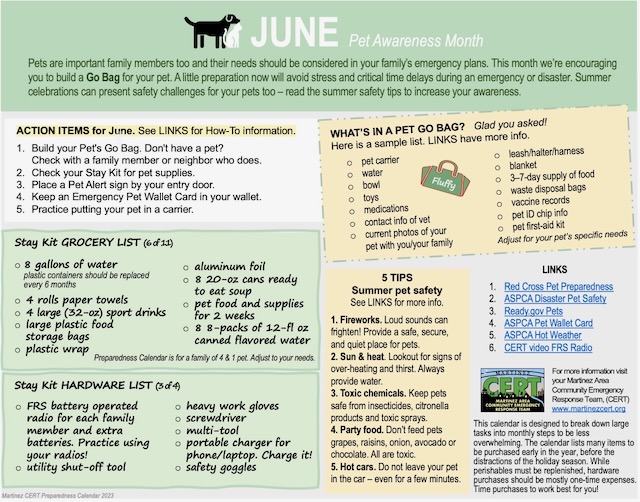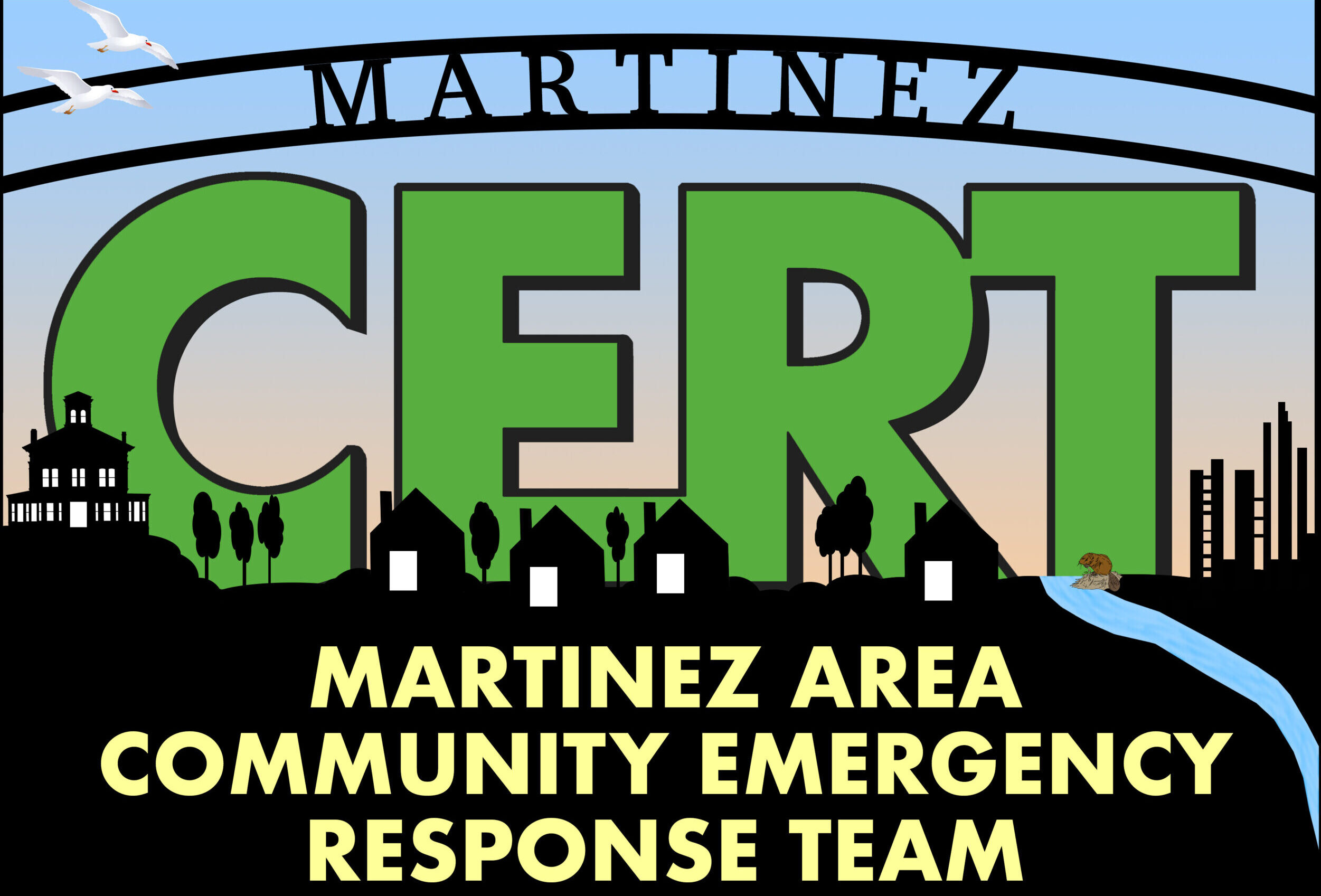JUNE is Pet Awareness Month

During Pet Awareness Month we would like to remind pet owners that their furry friends are totally dependent on them for their safety during an emergency situation. Your disaster plans must include your pets to help keep your beloved pets safe.
As we head into wildfire season remember, if it’s not safe for you to be in your home, it’s not safe for your pets either. Make an evacuation plan that includes you, your loved ones and your pets. Many hotels and shelters do not accept animals, so plan ahead where you would take your pet. When you prepare your Go Bag, assemble one for your pet too. Our June guide has helpful tips and links to more information. You can download it here: June guide. Our 12 month guide is available here
A Go Bag for our typical household pets should hold items like these:
- Food. Keep several days’ supply of food in an airtight, waterproof container.
- Water. Store a water bowl and several days’ supply of water.
- Medicine. Keep an extra supply of the medicine your pet takes on a regular basis in a waterproof container.
- First aid kit. Talk to your veterinarian about what is most appropriate for your pet’s emergency medical needs.
- Collar with ID tag and a harness or leash. Include a backup leash, collar and ID tag. Have copies of your pet’s registration information and other relevant documents in a waterproof container and available electronically.
- Traveling bag, crate or sturdy carrier, ideally one for each pet. Practice loading them into these.
- Grooming items. Pet shampoo, conditioner and other items, in case your pet needs some cleaning up.
- Sanitation needs. Include pet litter and litter box, newspapers, paper towels, plastic trash bags and pet waste bags to provide for your pet’s sanitation needs.
- A picture of you and your pet together. If you become separated from your pet during an emergency, a picture of you and your pet together will help you document ownership and allow others to assist you in identifying your pet.
- Familiar items. Put favorite toys, treats or bedding in your kit. Familiar items can help reduce stress for your pet.
For larger animals, consider adding these items:
- Ensure all animals have some form of identification.
- Evacuate animals earlier, whenever possible. Map out primary and secondary routes in advance. Consider driving those routes periodically to make sure they are viable.
- Have vehicles and trailers needed for transporting and supporting each type of animal. Make arrangements with experienced handlers and drivers.
- Plan destinations that have food, water, veterinary care and handling equipment.
We offer FREE preparedness information and instruction periodically throughout year. Tell us you are interested here, and we’ll reserve a space for you at our next Basic Training session.
In the meantime, take a Free Mini Summer Class! We are offering three great FREE classes: Wildfire Preparedness, Earthquake Hazard Mitigation and Personal Emergency Preparedness. Click here for more information. Contact us here to register for these Free Mini Summer classes or get on the wait-list for Fall Basic Training. Don’t leave your preparedness to chance!
GET ALERTS

The Contra Costa County Community Warning System (CWS) is one of the nation’s most modern and effective all-hazard public warning systems. CWS is an all-hazards system designed to alert the community of an emergency through multiple communication tools. Sign up to receive important alerts from CWS here.
KNOW YOUR ZONE?
Be prepared for wildfires that may affect your home. Know when to take action and what action to take. In the event of a wildfire or an emergency situation, law enforcement and fire agencies issue evacuation warnings or evacuation orders for impacted areas. These notices are issued for a Zone with an evacuation status. Find out your home’s zone at CWS Know Your Zone or at ZoneAware. More information about ZoneHaven may be found here.
